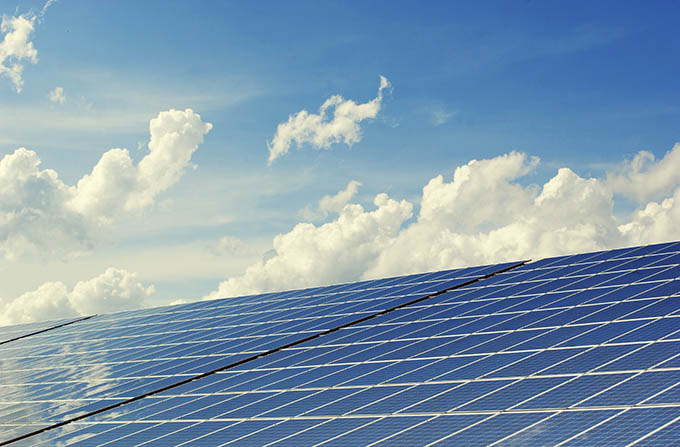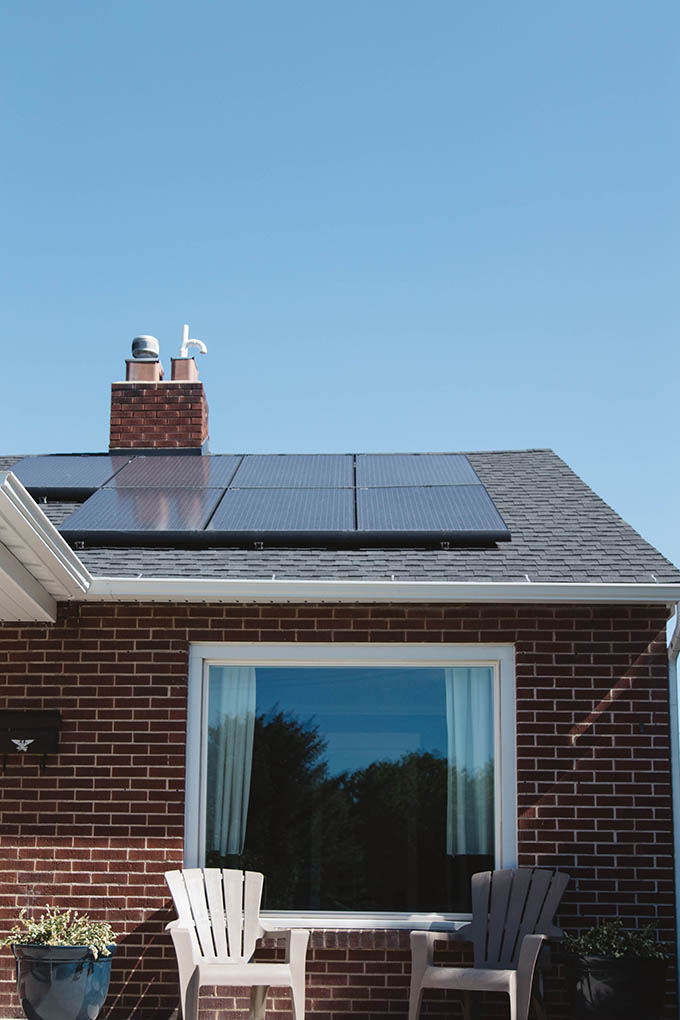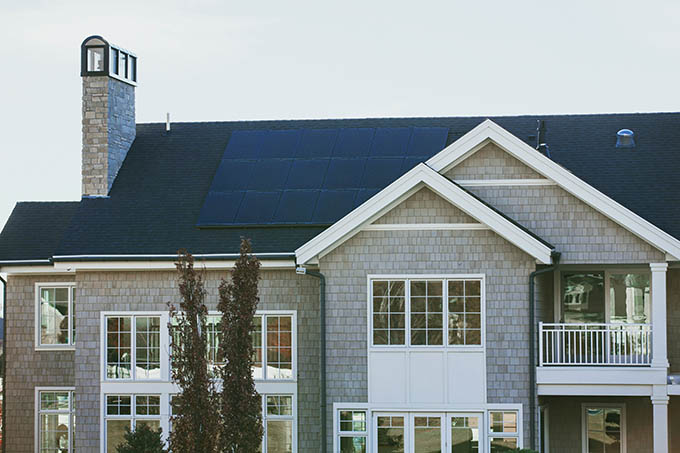
Searching for an alternative energy source in your home?
One of the most trustworthy sources of renewable energy is solar power. It helps mitigate your monthly energy bills. If you’re willing to invest more, you’ll make enough energy to go off-grid.
Either way, a solar panel system can improve your house.
To learn the full extent of solar energy, read the rest of our homeowner’s guide. We’ll help you know every consideration necessary to help you decide.
What is Solar Power?
The sun is one of the best renewable energy source options around. To harness its power, you must use the process of photovoltaic effect. It converts the sun’s rays into electricity, powering your home appliances.
What are the Components of a Solar Panel System?
To make solar energy for your home, you must have a solar power system. You’re familiar with solar panels since it’s the most visible part of this system. However, you need the entire system for them to function.
The essential components include solar panels, inverters, and racking. This allows your home to capture the sun’s energy, convert it to electricity, and support your system.
You must also have a way to store the energy from these panels. You need not invest in additional equipment if you have power line access. Feed the energy into the utility grid and use it later.
However, it won’t work if you want to go off the grid. You need to get additional parts like batteries and charge controllers. Batteries store energy and the latter controls its charging rate from solar sources.
The system uses wiring, fuses, and disconnects to connect its components. Some equipment allows you to track your system’s output in real-time. It helps detect problems like defects and shading.

What are the Pros and Cons of Using Solar Energy?
Solar energy is popular because of the benefits surrounding it. Here are some of the reasons to use solar over other power sources:
Renewable
The energy coming from sunlight is infinite. It isn’t like oil since spending them means getting rid of them from the Earth. You can harvest the sun’s energy without worrying about depleting it.
Lower Electric Bills
With solar power, you’ll only pay a fraction of your utility costs each month. It’s especially when you use it as a replacement for your grid-tied household. If you get the right solar energy system, your electric bill can drop to nothing.
Remote Power
Do you live far from major American cities? If so, power lines to your home might be unfeasible or expensive.
In this case, solar power systems might be your only option. It’s the most cost-efficient method of getting electricity when you can’t connect to the power grid.
Increase Property Value
If your home has solar power systems, they’ll sell 4.1% higher than those without. It means gaining almost $10,000 more property value on a median-valued American house. It’s also the best option if you’re buying underdeveloped properties in more rural areas.
Along with the benefits, investing in solar energy has some drawbacks. Consider these disadvantages before you decide to switch to solar power:
High Upfront Costs
Even the smallest solar power systems can put a dent in your budget with a few thousand dollars. If you plan to invest in a full-scale system, it could cost you over five figures. It pays dividends in the long run, but it’s expensive to get started.
A good alternative is to get solar financing. Depending on your state, you might get better financing options. It’s still cheaper than paying for increasing energy bills each month.
Weather Dependency
Various factors reduce your solar panel output. Common detrimental situations include snow, shade, and other debris. If your panels can’t get lots of sunlight, their efficiency is lower than advertised.
The good news is that you can supplement your system with equipment. These will mitigate the impact of lower energy efficiency. If you’re willing to pay more, this won’t be a big issue.
Bulky
Depending on your configuration, solar panels can be 3 feet wide and 7 feet tall. If you’re an average household, your system will have a few dozen panels. It can take lots of space, meaning smaller properties can’t take advantage of this energy.
Expensive Storage
The most expensive component of a solar power system is the batteries. It’s also one of the most important if you plan to go off the grid. Even if you’re grid-tied, batteries are necessary as backup power sources.
Batteries can eat away at your return on investment. It’s why you must use them only when it’s necessary. For example, if you’re in an area with unreliable power, having batteries can give you the peace of mind you need.
Grid-Tie vs. Off-Grid Solar: What’s the Difference?
Before switching to solar energy, you must decide the right system for you. In this energy guide, you’ll learn about grid-tied and off-grid systems. These are their benefits:
Grid-Tied
These systems are great for saving money on your energy bills. It’s less expensive compared to buying electricity from the local utility provider. It’s the default system for households that connect to the utility grid.
Off-Grid
These systems are for properties located in remote areas. It helps deliver power even when your property has no easy access to the utility grid. They cost more, but they’re reliable if you’re in a rural area.
Hybrid
It’s the combination of the two abovementioned systems. It connects to the grid but uses batteries to store backup energy. Reputable solar providers call these energy storage systems.
Energy storage systems can give power in case your area experiences power outages. It’s handy when severe weather hits. You can also sell your excess energy later to increase this system’s ROI.
With hybrid solar power systems, you get the most out of your electricity generation. It’s your choice whether you spend more to achieve more flexibility.

What is Net Metering?
If you have a grid-tied solar power system, you can store your generated power in the utility grid. To compensate, utility companies give your account credit.
You can use it to claim power from the grid when certain situations arise. This includes poor sun visibility, poor weather conditions, or at night.
Each utility company has policies that govern the bills and credits for customers. This agreement is the company’s net metering policy. In most cases, they buy and sell electricity using the same rate.
However, some will buy your solar power at a lower rate. It has a big impact on your solar energy ROI, especially when you used financing methods to invest. You must first contact your utility provider and understand their net metering policies.
What is the Average Lifespan of Solar Panels?
Most providers will guarantee an 80% efficiency rate for solar panels for 25 years. When the warranty concludes, the panels won’t break. They continue working with a reduced output rate.
For example, a 300-watt-rated panel can make around 240 watts of output when it reaches its 25-year mark. It’s what makes solar panels reliable. Some studies conclude that over 75% of panels can outperform their warranty.
The only problem comes from the other components. Inverters and batteries won’t last as long and need at least one replacement over their lifespan. To determine your true ROI, factor these costs over the system’s lifespan.
Most inverters have up to two decades’-worth of warranty. Depending on your battery choice, you can make them last for as long as 15 years.
Lead-acid batteries last 3-7 years, depending on maintenance. Lithium batteries can last for 10-15 years.
How to Measure Solar Panel Efficiency?
Often, people misunderstand the concept of solar panel efficiency. Most panels’ efficiency rating range between 15% and 25%. Without proper context, these figures sound low.
It’s because people think that a 100-watt panel only makes 20 watts of power. Solar panel efficiency rating determines the sun’s energy converted into solar power. For example, a 20% efficiency 100-watt panel absorbs 20% of the sun’s 500 watts of power streaming.
When shifting to solar power, don’t dwell too much on efficiency. Panels with higher efficiency can fit more solar energy using less space. They only matter when you have limited property space.
Otherwise, you won’t lose out if you build a larger panel array using less efficient panels. If you have enough property space, your system costs less if you use less efficient panels. They have a lower cost-per-watt while remaining consistent with other cost considerations.
Save Time and Money With This Homeowner’s Guide Today
These are some of the things you must know if you’re considering solar power. It’s renewable and can save you lots of money in the long run. At the same time, the high initial investment can be prohibitive for people with less budget.
This homeowner’s guide is sure to help you get started. Learn the basics, optimize your home, and install solar panels today!
Investing in a solar panel system can increase your property’s value for reselling. However, you don’t have to stop there. If you want more tips on increasing your home’s value before selling, check out our other guides.



